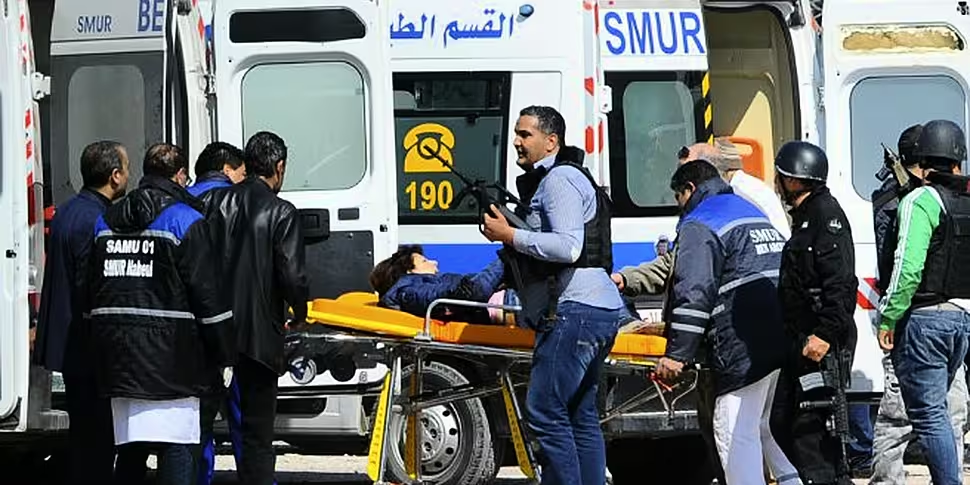19 people have been killed after militants attacked a museum in the Tunisian parliament building compound, the country's prime minister has said.
Initial reports on local media said those killed included British nationals, but the Tunisian prime minister Habib Essid told national television the victims were Polish, Spanish, German, Italian and Tunisian, including 17 tourists.
The gunmen, wearing military uniforms, opened fire on tourists as they were getting off buses and later held hostages inside the Bardo Museum.
Security forces surrounded the building and later stormed it, killing two militants. One policeman was killed along with a cleaner during the operation.
The interior ministry said Tunisian troops freed all the hostages, but there were reports that security forces were hunting as many as three accomplices believed to still be at large.
Thirty eight people were also wounded in the attack, according to Health Minister Said Aidi.
AFP news agency reported that at least two men armed with Kalashnikov assault rifles were involved in the attack.
French Prime Minister Manuel Valls confirmed that hostages had been taken during the attack.
Speaking in Brussels, he said: "I condemn this terrorist attack in the strongest terms. There has been a hostage-taking, without doubt tourists have been affected, killed."
The museum is a leading tourist attraction in the country, and houses one of the world's largest Roman mosaic collections.
Gavin Stoddart, a British tourist who left the museum 15 minutes before the attack, said he was made to return to his cruise ship after the tour guide got a phone call.
He told Sky News: "Tour guide didn't know reason. All coaches returned to ship very quickly.
"They're doing a ship-wide announcement about it all now. I don't think everyone is back on board.
"It just said there is extra security and we can see police boats around the ship now."
Costa Crociere, owners of the cruise liner Costa Fascinosa which docked in Tunis on Wednesday morning, said some of its 3,161 passengers were visiting Tunis and a tour of the Bardo museum was part of the itinerary.
President Beji Caid Essebsi was due to make a public statement to the nation later on Wednesday.
There has been no immediate claim of responsibility for the attack.
A spokesman from the Foreign and Commonwealth Office said: "We are urgently looking in to the serious situation in Tunisia."
Tunisia has struggled with Islamist extremism, including militants linked to al Qaeda and Islamic State, after its authoritarian president Zine El Abidine Ben Ali was overthrown in January 2011.
Dozens of police officers and military personnel have been killed or wounded in attacks blamed on Islamist militants.
Authorities have said as many as 3,000 Tunisians have travelled to Iraq and Syria to fight with jihadist groups, including IS.
The attack is the worst since an al Qaeda suicide bombing on a synagogue killed 21 people on the tourist island of Djerba in 2002.
Originally posted at 13.00









